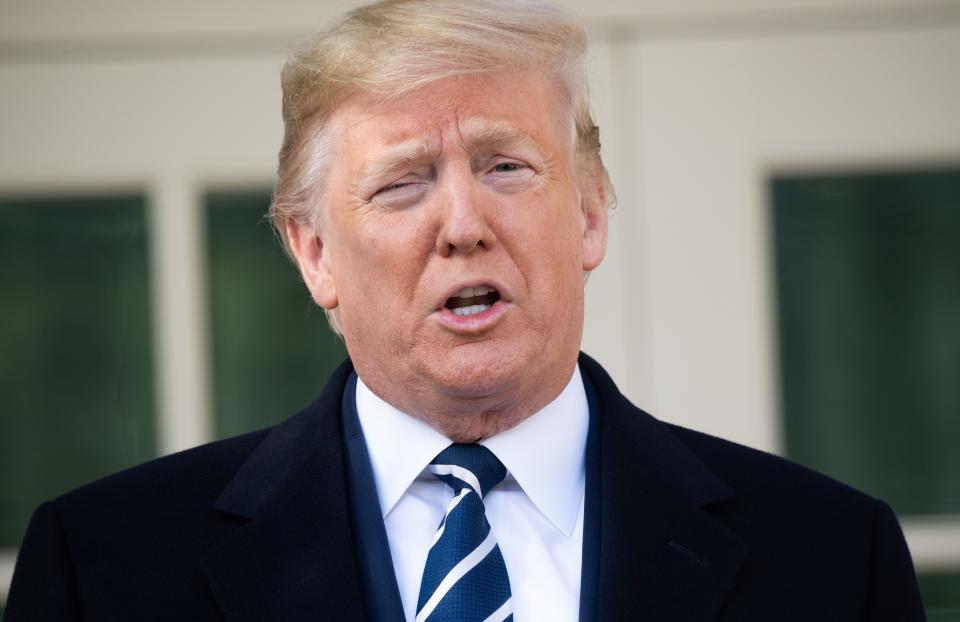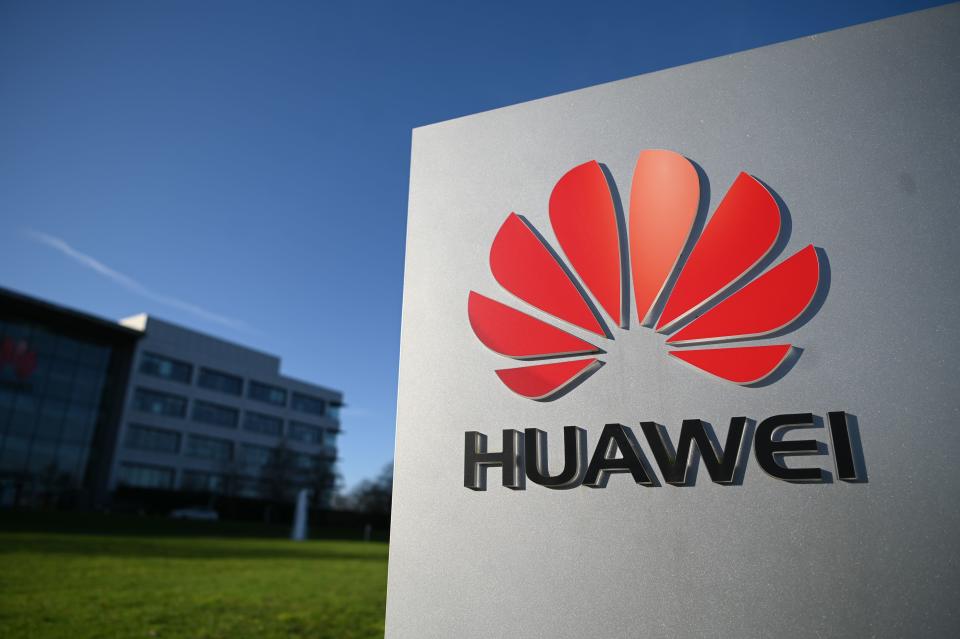Boris Johnson defies Trump to give Huawei 5G green light
Britain has given Huawei the green light to work on 5G infrastructure, despite sustained pressure from the US to ban the company.
The UK government announced on Tuesday that Huawei had been cleared to work on parts of 5G but said restrictions would be put in place to limit potential national security risks.
The Departure of Culture, Media, and Sport (DCMS) said companies deemed “high risk” would be excluded from sensitive areas of the 5G network, such as nuclear plants and military bases, and limited to 35% market share.
“High risk vendors have never been — and never will be — in our most sensitive networks,” Ciaran Martin, the chief executive of the National Cyber Security Centre (NCSC), said. “Taken together these measures add up to a very strong framework for digital security.”
READ MORE: Security, trade, tech: Inside UK’s crunch Huawei decision
The DCMS announcement made no mention of Huawei directly but a separate announcement from the NCSC said the decision was “including, but not limited to, Huawei” and said Huawei had been treated as a “high risk” vendor since 2003.
‘A major defeat for the US’
The decision to allow Huawei into 5G networks follows months of assessment by cyber security specialists and puts the UK at odds with the US, which has called for the UK to follow Australia and New Zealand in banning Huawei.
US intelligence services believe Shenzen-based Huawei may have links to the Chinese state and fear allowing it to work on national telecoms equipment could allow Beijing to spy on sensitive government communications.
The UK, US, Australia, New Zealand, and Canada are all members of the international intelligence sharing group known as the ‘Five Eyes’ and the US are concerned that a breach in UK communications could leave them exposed.
Even if Huawei is not working with the Chinese government, experts told Yahoo Finance UK its Chinese supply chain could be compromised. GCHQ said last year Huawei’s software was “shoddy,” adding to hacking risks.

The US has repeatedly pressed the UK to ban Huawei, with secretary of state Mike Pompeo issuing a warning on Twitter this week. Trump labelled Huawei a national security threat at a December NATO meeting and the US placed sanctions on the company last year.
Former US Presidential candidate Mitt Romney said Tuesday the UK’s decision was “disconcerting”.
“By prioritizing costs, the UK is sacrificing national security and inviting the [Chinese Communist Party]’s surveillance state in,” he wrote on Twitter. “I implore our British allies to reverse their decision.”
Republican politician Newt Gingrich, the former speaker of the House of Representatives, called the UK decision “a major defeat for the United States” on Twitter.
READ MORE: US warns UK over 'momentous' Huawei decision
Foreign secretary Dominic Raab said the decision wouldn’t damage UK intelligence sharing agreements.
“Nothing in this review affects this country’s ability to share highly sensitive intelligence data over highly secure networks both within the UK and with our partners, including the Five Eyes,” Raab told parliament on Tuesday afternoon.
The potential rift comes at a sensitive time in US-UK relations, with the two countries just beginning post-Brexit trade negotiations.
Republican Senator Lindsey Graham, who chairs the Senate Judiciary Committee, tweeted the decision could “could greatly complicate a US-UK free trade agreement”.
Johnson’s decision also puts him at odds with many in his own party. Former foreign secretary Jeremy Hunt, former Tory party leader Sir Iain Duncan Smith, and Tom Tugendhat MP, who is seeking re-election as the chair of the Foreign Affairs Select Committee, have all spoken out on the issue this week. Reports suggested home secretary Priti Patel was also concerned about Huawei.
‘Seize the huge opportunity’

UK officials believe they can manage the risks posed by Huawei.
Raab told parliament Britain’s electronic communications spy agency GCHQ had conducted “the most detailed study of what is needed to protect 5G anywhere in the world”.
“We know more about Huawei and the risks it poses than any other country in the world,” he said.
Johnson is reluctant to ban Huawei over fears it could put the UK at a disadvantage technologically. Only two other companies — Ericsson and Nokia — can supply 5G telecom equipment and their kit is more expensive and less advanced.
Andrew Tsonchev, director of technology at cyber security firm Darktrace, said a boycott would set the UK back by five years in technology terms.
“[Huawei] simply have a significant first mover advantage,” he told Yahoo Finance UK on Monday.
Raab told parliament the government would create a new telecoms security regime to oversee the system and would introduce “tough new security standards” for vendors working with companies like Huawei.
“Risk can’t be eliminated in telecoms but it is the job of government, Ofcom, and industry to work together to reduce vulnerabilities and mitigate those risks,” the foreign secretary said.
Digital minister Baroness Nicky Morgan said: “This is a UK-specific solution for UK-specific reasons and the decision deals with the challenges we face right now. We can now move forward and seize the huge opportunities of 21st century technology.”
Victor Zhang, vice president of Huawei, said in a video statement posted on Twitter he was “reassured” by the UK’s “evidence-based” decision.


